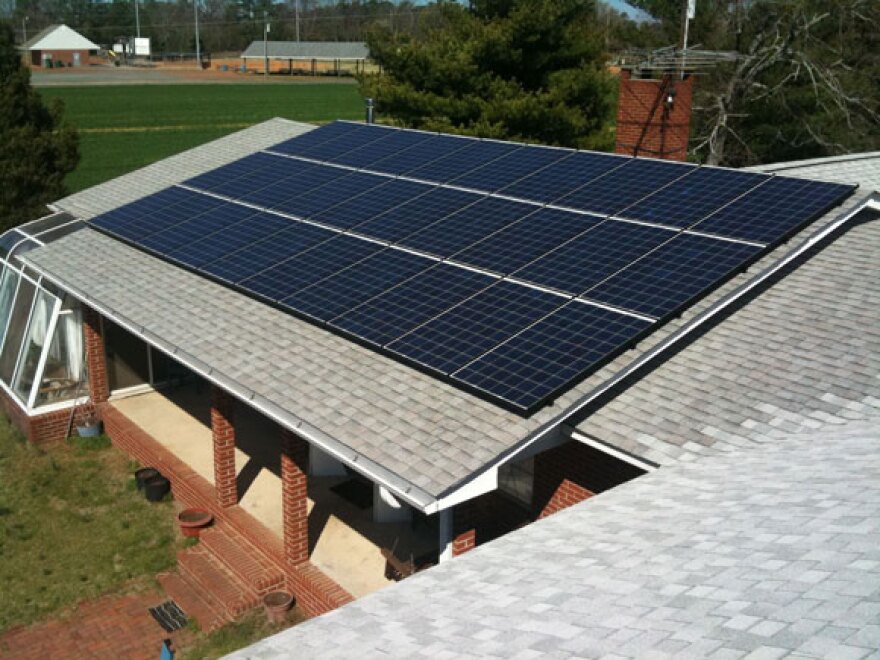The small warehouse and loading area in the back of the Yes! Solar Solutions building in Cary is empty. And that’s a good thing. On this bright, sunny Fall day, it means all the crews are out on jobs, installing solar panels on houses.
Kathy Miller and her husband Stew started the company in 2009, after selling the Primrose Schools of Cary. They could have done almost anything at that point, but decided to throw their future into solar energy.
Turns out, the pre-school business and the solar business aren’t all that different.
“To us, it was kind of a fit with doing something that prepares the next generation that creates a sustainable lifestyle and that’s kind of a community-oriented way to make a living,” says Kathy Miller.
No banks were interested in loaning the Millers money, so they went it alone. The company has grown from five employees when they started to more than 20 today.
North Carolina is currently fourth in the country in installed solar capacity. Duke Energy recently announced a half-a-billion-dollar investment in solar - including the largest solar farm on the east coast in Duplin County. Utility companies, like Duke Energy, own some of those solar farms and have long lease agreements with others.
But most of that capacity is in solar farms. Rooftop solar has a much different business model – and a less-certain future.
Individual homeowners get federal and state tax breaks to install rooftop solar, and then sell excess electricity back to the utility company. That creates more customers for small solar companies, like Yes! Solar Solutions.
“The incentives are actually hurting their ability to compete because it’s kind of a safety blanket,” says Jon Sanders, director of Regulatory Studies at the conservative John Locke Foundation. “They are protected from the buffeting winds of competition that are what drives innovation.”
Of course, other forms of energy production have received government benefits for decades.
Here’s one example: When utility companies began building nuclear power plants in the 1950s, liability coverage was way too low, and the risk way too high. So Congress stepped in and passed the Price Anderson Act, a government-backed insurance subsidy that allowed the industry to exist.
If nuclear survived because of the Price Anderson act, rooftop solar will survive only if an agreement can be reached on “net metering”.
Currently, an electric utility company in North Carolina must pay the retail rate of 11 cents per kilowatt hour to a homeowner who produces solar power and puts it out onto the grid.
Duke Energy would rather pay the federal minimum, a little less than seven cents per kilowatt hour. It argues that paying the retail rate doesn’t account for the costs the company incurs to maintain the grid that delivers the electricity.
“We have to solve the issues of how we dispatch those resources in a way that’s consistent with what we get from a nuclear plant or a natural gas plant or a coal plant,” says Jeff Brooks, a spokesman for Duke Energy. “That’s still an area in renewables that has a lot of work yet to go.”
Duke is expected to ask the state Utilities Commission later this year to lower the net metering rate. On top of that, the 35-percent state tax credit ends next year; the 30-percent federal tax credit a year later.
And the General Assembly may take another look at the renewable energy portfolio standards. It requires that 12.5 percent of the retail electricity sales come from renewable energy by 2020.
“Right now, what we’re struggling with, is we don’t know what the rules are going to be down the road,” says Stew Miller, the co-owner of Yes! Solar Solutions and a Board member of Conservatives For Clean Energy. “It’s very difficult to run a business, whether you’re small or big, without knowing what the rules of the game are going to be in the future.”









